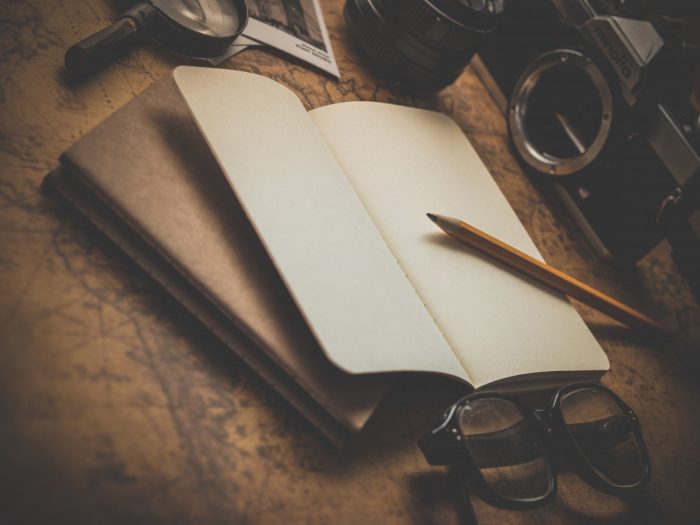I haven’t written anything worth reading in ages.
Well, that’s not entirely true. I’ve been trying too hard to write words that are positive and uplifting and of benefit to others. Those words have eluded me. Instead, I have written thousands of words that are of benefit to only me. The words that leaked, dripped and finally burst from my chest have been too sad, too angry and too dark. They reek of emotionalism and have been far too unpleasant for public presentation.
We have all visited this place. This dark and depressing place we dwell in, where we pray no one asks how we are doing because we will crack if we squeeze one more syllable of breezy, bright bullshit through our fake smiling lips. We arrive here when we have spent too much time doing things we have to, unfulfilling things, without enough time spent pouring our energy into our passions. We start to forget what joy feels like and we become shells of our true selves, desiccated like the husk of a fly in a spider’s web.
A simple bad day at work can be enough to send the snowball rolling downhill, gathering weight and momentum and picking up layers of disappointment and resentment along the way. If our work is not meaningful and we don’t feel valued, we struggle through our eight hours, forcing ourselves to do the thing we are paid to do while simultaneously berating ourselves for still doing it. Day after day, we stare at our screens and wonder how we got here and how we can escape.
We strategize ways of getting through the day without feeling numb and we try, in vain, to shift our attitude and focus on the positive aspects of whatever it is that is breaking our spirit and reigning in our souls. It’s all perspective, right? Someone else would love to have our office, with its west-facing window that we regularly watch beautiful sunsets through. We should appreciate our flexible-ish schedule and the shower that we use after we cycle our 30 minutes to work. We should be thankful for the security and the salary and the occasional leftover snacks from meetings.
We start to see our health benefits and paid vacation time and the promise of a pension for what they are, ways to offset the pain of sacrifice today. Those health benefits are especially alluring when we develop migraines and ulcers. The vacations are no longer about the joy of exploring new places, they are recovery periods just like weekends. The pension is a trade-off of the freedom of our most vital and energetic years for a basic income when we are old and worn out from not tending the fire of our true passions. Of course, money is necessary to live now and in the future. Our families depend on us, our pets depend on us, our mortgage holders and landlords depend on us, and the ‘success’ of our capitalist society requires our participation in the cycle of work and spend. It feels as though there are few other options available.
We scroll through social media, internalizing an endless stream of highlights documented by the poets and life coaches and yogis and mountaineers we admire, without consideration of the years of effort and training and sacrifice it took to achieve them. We normalize their greatness and compare it to our mediocre. We wonder why we can’t reach those same heights within our available evenings and weekends and feel disillusioned and embarrassed by our former dreams.
In fighting our perceived battle of Life, we race from place to place, forgetting to prioritize food, water, rest, security and safety; the most basic elements in Maslow’s hierarchy of needs. We go about our daily routines so quickly and mindlessly that we miss out on the deliciousness of our meals and the pleasant fullness of our bellies. At the end of the day, we fall into our beds, weary, without noticing the deep restorative breaths filling our lungs as we naturally relax our tense muscles and we interrupt our monkey minds for not nearly enough sleep. When we don’t give ourselves these fundamental necessities, eventually, our bodies force us to slow down. Days are lost to sleepless nights and twisted guts and pounding heads. Our bodies expel more than they absorb and we become exhausted and have no energy left to move in the mountains or on the mat, our joy and also our therapy. We become ill and still, not because we choose to, but because our bodies have grounded us.
When we are forced to give up the distraction of our busyness, old thought patterns, despite being unhealthy, become oddly comforting. We wallow in our limiting beliefs and bask in our harmful habits. Our reminiscing turns to rumination and we get caught up in regretting the past and wishing things were different today. We are blinded to our advantages and our gifts, oblivious to the opportunities presented to us. Nothing is good enough. We are not good enough. The all-consuming darkness threatens to block out the sun that still rises and sets every single day, unbeknownst to us. We teeter around our rabbit holes, peering into the familiar depths.
It’s times like these that we must write.
Letting painful memories and negative self-talk escape our mind and travel through our fingers to be absorbed by an inanimate object, a piece of paper or a laptop, is safe. No one is harmed by our sharp words and we are not forced to share our shame, though we can if we choose to. Just like tears release pressure from our hearts, writing releases some of the fear attached to old stories that clog up our brain and inhibit the flow of our dreams.
Whether you write poetry in cursive on the pages of a leather-bound book or you hammer out your streaming consciousness Kerouac style into an old cranky typewriter, the benefits are undeniable.
When we pour our hearts out into our journals, the effect is similar to that sense of relief we feel as we pour a second glass of wine, but without the hangover. At the end of the day, we deserve to treat ourselves to the brain release that comes with letting the stress of our day spill onto the page. That half an hour we committed to easily turns into an hour or more, as the next episode of our life’s drama, and then the next, practically writes itself. The benefits of writing out our thoughts far exceed the gains from mindlessly allowing the next episode in the latest Netflix series to consume our consciousness.
The next time you arrive home, drained from a day of misalignment between your work and your purpose, try reaching for a pen instead of a bottle or the remote. You may find it takes the edge off just enough that you are able to isolate exactly what needs to be different in your life and, rather than just taking a break from your pain for the evening, maybe you can outline a plan to take even a small step toward something better.
Writing is the ultimate coping mechanism.


 Share on bsky
Share on bsky





Read 4 comments and reply